My Favourite Reads of 2024
Reflections on my year of reading and sharing some intentions for 2025.
When a year ends and another begins, I start to feel increasingly paralysed by the sentiment of too much to read, too little time. I can feel suffocated by my love for books; there is so much I want to read - how will I ever be able to read it all? This, I am sure, will be a lifelong feeling, but it has been exacerbated by writing this newsletter. Despite this dread, the infinite scope of reading makes me excited for all the stories I will have the privilege of knowing. Although there are countless books to read, each one I choose to spend time with and reflect on in Martha’s Monthly, is more important to me than the rate at which I can read them.
I try, to the best of my ability, to satisfy all my reading ambitions and I think I do an okay job. I find little value in sharing gamified statistics of my reading life (e.g, pages read, average reading time, star ratings etc) because I think these are the least interesting aspect to someone's reading year. What I do care for is understanding how intentional my reading was last year and how much it aligned with what I would consider my 'reading beliefs’. I often say that I read diversely, avoid the big five as much as I can, don’t get caught up in new release hysteria and care deeply about translated novels. These are, more or less, my guiding light for choosing what books I would like to read. While reflecting back on my reading in 2024, I wanted to see if I practice what I preach;
Out of the 98 books I read last year;
54 were translated
63 were written by women
49 were written by people of colour1
Publishing Houses:
29 of the books I read were published by Big Five 2
69 were Independent publishing houses (most recurring; Charco Press, Fitzcarraldo Editions, Daunt Book Publishing, And Other Stories and Faber & Faber - these are all UK independents too)
Publishing Year:
1 in 2025 (this was an ARC)
20 in 2024 3
57 in the 21st Century 4
19 in the 20th Century
1 in the 19th Century
If I am being completely transparent, these statistics satisfy me. I do not wish to gamify my reading life, but I do care a lot about how the books I read contribute to a wider cultural conversation. I do not believe everyone should necessarily only read books that are politically or socially relevant, but for me, reading books that are, and consistently challenge my view of the world, is a must. I seek to read the perspectives of those who are unheard on the global stage. For me, that looks like reading the stories of women, people of colour and those whose native language is not English. It also looks like combing back through the decades and centuries, to books that have perhaps fallen out of favour to submerge myself in a perspective that is so different from my own.
Last year I set the goal of reading one classic novel a month because I was witnessing them collecting dust on my shelves. I wouldn’t go as far as suggesting taking English Literature at college ruined my relationship with classics, but it definitely didn't help. Thus, I realised that the only way I was going to manage to reacquaint myself with them was by forcing my own hand, in front of an audience.
Now that the year is over, I am so grateful I made this a personal goal. Not only did I read all the classics that had been on my shelves for years, but I managed to change my relationship with them. I now see, in what I choose to read, that I have become more open-minded and familiar with reading across the centuries. I now choose books to read that I would not have eighteen months ago, and that is a win for me. It is an apt reminder that your taste can - and is - always subject to change, particularly with reading.
2024 also saw me introduce perhaps my favourite aspect of my newsletter; Martha’s Map. My map helps me understand more succinctly where I have, and have not, read translated literature from. After a year, I think the act of cataloguing my translated reading in this way is helping me be much more intentional and aware of the parts of the world that I am not hearing stories from. The map has also inspired other maps, which is a complete honour. (see
’s Africa Map and ’s Asia Map if you want more map content).A ‘favourite’ read is determined by so many variables: the mood you are in, what you read before, the expectation you had before reading, how the book fits into current cultural criticism, the list could go on.
These are all factors that if this were a science experiment, there are almost no controls. There are books I had no expectations for last year, and because of this, I ended up loving them even more ferociously. There are books I had high expectations for, and subsequently felt even more feverish when they were met. There were books I avoided because of their popularity, because I am (willing to admit) a bit of a book snob. All of that is to say, favourite lists are personal and unique.
I would define my favourites as the books I read that had the most staying power.
called her list the ‘books that mattered’, and said that for her, the books had to be ‘luminous’. To marry up the two and create my own rubric of greatness, these are the books that I was in awe of; they made my heart swell, my mind race, and my admiration for the craft of writing grow further. They were luminous in ways that I found incredibly hard to articulate. I often sat in front of my laptop for hours agonising over how I could possibly express my arresting emotional experiences with them.To quote myself from My Favourite Reads of 2023 post, ‘I want to finish a book feeling like my mind and heart have gotten a little bigger’. Each of these books have helped me learn aspects about myself and the world, and that is why they matter to me. There is no order here, they share equal footing. I landed at 10 with the cut-throat approach of only selecting the books that I was truly in awe of.
Before I share my top 10, here are some honourable mentions;
My Top 10 Reads of 2024:
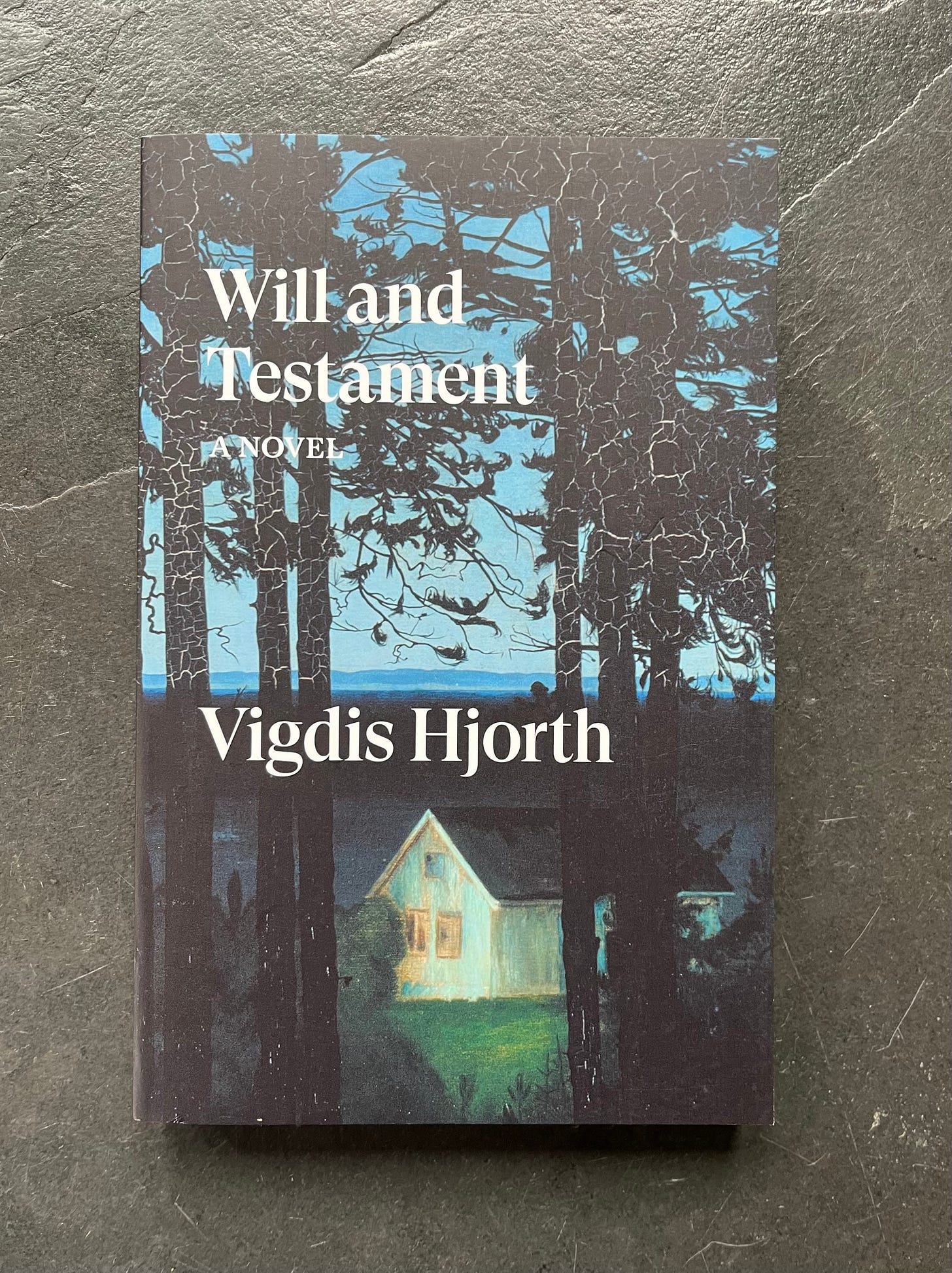
‘Will and Testament’ by Vigdis Hjorth is a lyrical and complex story about the intricate and often painful relationships within families. A dispute about inheritance pulls Bergljot back into the family she cut ties with twenty years ago. What seems like a dispute about favouritism turns into a carefully constructed attempt by the family to suppress the truth. Hjorth’s writing is hypnotic as she unsettlingly and beautifully explores mistrust and misunderstanding. It was the first book I read last year where I had a gut feeling it was really going to matter to me. It is engrossing and devastating. I loved every minute spent in Bergljot’s mind. My full review can be found here.
My friend
read this book off my recommendation and named it as one of her favourite books of 2024 too!To Read If You; Enjoy stories about complex family dynamics and generational trauma. Enjoy stories where secrets and lies have ripped families apart. Admire books that meditate on the nature of memory. Believe in no contact and that blood is not thicker than water.
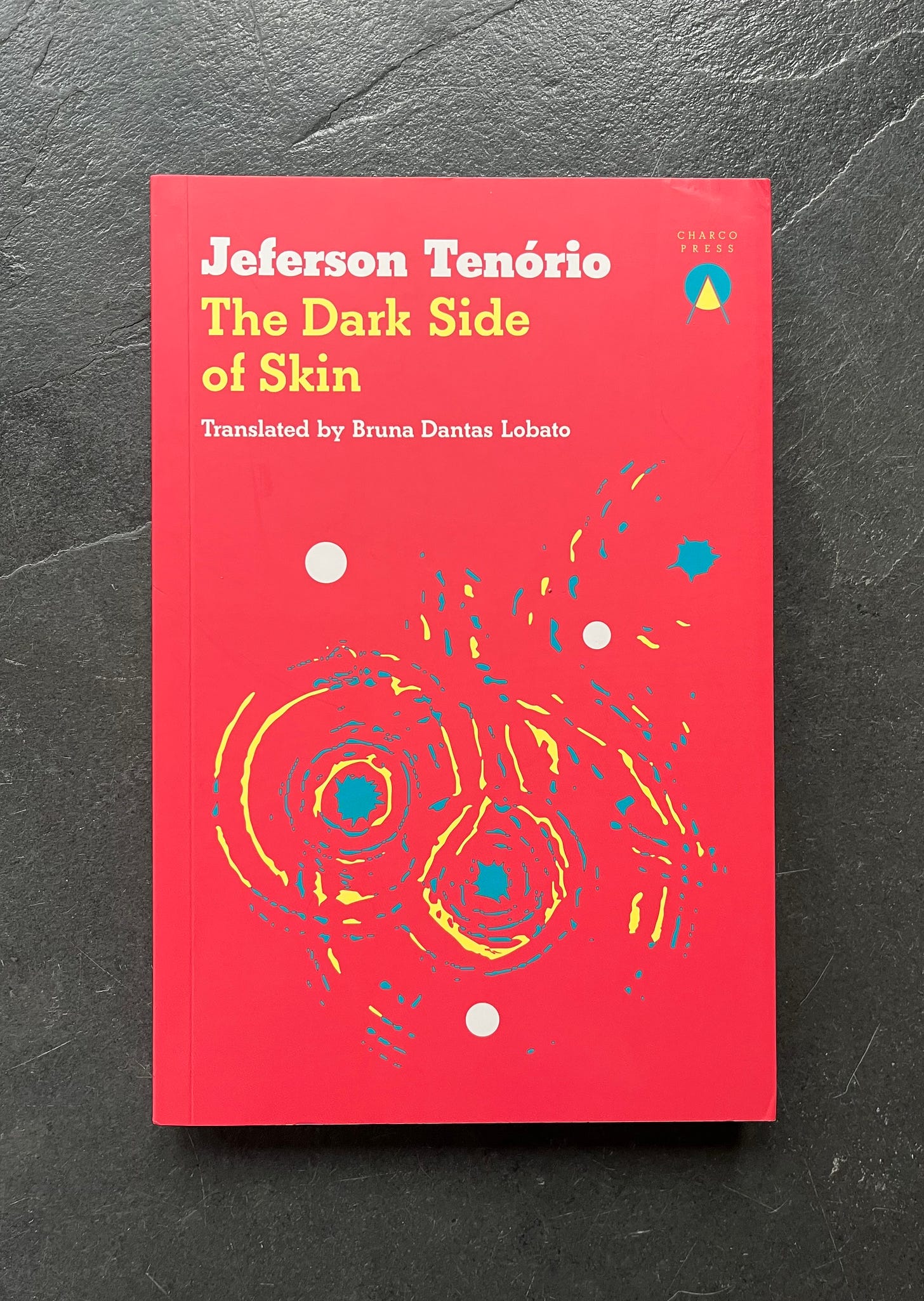
‘The Dark Side of Skin’ by Jeferson Tenório interrogates Brazil’s cordial racism; a form of racial prejudice that is expressed in the guise of politeness, rather than overt hostility. Set in Porto Alegre, Pedro is trying to learn about his father, Henrique, from the objects he left behind after his death. Written in second person, we learn about Henrique and Pedro’s differing experiences as growing up as Black men in Brazil. Tenório’s prose is an emotional and compelling exploration of a father figure who is trying his best in a world where he is criminalised, discriminated against and misunderstood. This book was deeply moving; as joyful as it was painful to read. It took my breath away in how it explored the bonds and burdens that can exist in parent/child relationships. My full review can be found here.
I recommended this book to my friend
, and he loved it too!To Read If You: Enjoy father and son relationships. Revel in books that explore social issues on an individual and institutional level. Want to learn more about Brazilian society. Enjoy the idea of learning about identity through the objects people leave behind. Feel like you don’t really know the life your parents lived before you arrived.
‘What Is Mine’ by José Henrique Bortoluci is a memoir about the last fifty-years in Brazil through the lens of an ordinary man. Through a series of interviews, Bortoluci talks to his father, Didi, about his experiences as a truck driver from the 1960s to 2010s. Didi’s testimonies bring the nation to life, painting a picture of environmental degradation, economic and political change. Bortoluci explores the intersection between personal and national histories in a way I have never read before. The nuanced exploration of illness, capitalism and the socio-political state of Brazil was profound. It is a remarkable way for Bortoluci to seamlessly honour his father and interrogate the state of the nation in Brazil. My full review can be found here.
To Read If You: Are interested in socio-political theory. Enjoy books that discuss identity in relation to class, poverty and the workforce. Want to read an account of someone who witnessed some of the first deforestation of the Amazon. Are interested in the intersection of personal and national history. Believe there is more to learn from listening to a working man than those in positions of power about the state-of-a-nation.
‘East of Eden’ by John Steinbeck. Set in the farmland of Salinas Valley, California, we follow the lives of the Trasks and Hamiltons, whose destinies are fruitfully and fatefully intertwined. I was in awe of the captivating narrative Steinbeck had constructed, following the ebb and flow of life through three generations in the early twentieth-century. East of Eden explores the essence of humanity through the struggle between good and evil and the concept of fate. I loved it, I thought it was so well done and timelessly thought provoking. I did not know what to expect from Steinbeck, and I think this uncertainty resulted in admiring and enjoying it even more. I had avoided this novel for so long, and for what?! Cathy has to be one of my favourite literary characters of last year, I thought she was extraordinary. My full review can be found here.
The Grapes of Wrath is going to be my next Steinbeck this summer.
To Read If You: Enjoy multi-generational family sagas. Are interested in alternative retellings of Adam and Eve or Cain and Abel. Enjoy stories about misunderstood women and slightly useless men. Wonder if destiny is a thing. Are interested in stories that explore concepts of fate. Think that the line between good and evil is blurry. Are aware a Netflix East of Eden adaptation is imminent and you want to come across as well read and ahead of the curve when everyone is talking about it.
‘Enter Ghost’ by Isabella Hammad follows actress, Sonia Nasir, returning to her ancestral home in Hafia after many years away. Sonia ends up getting involved in a production of Hamlet in the West Bank and a journey of complex personal and professional discovery unfolds. Enter Ghost is a beautiful story about a woman’s journey of self-discovery and the fraught nature of being politicised by virtue of being Palestinian. Hammad handles topics from miscarriages to the volatile lives of those in the West Bank with compassion and grace. There is nothing didactic about this story. Although it carries political weight, it is fundamentally a story about humanity and identity. The relationship between art, politics and family. It is a perfect literary fiction, balancing the story of an individual within the much larger political context; the eternal journey of understanding who you are and how others view you. My full review can be found here.
and read this off the back of my recommendation, and absolutely sang its praises too!To Read If You: Like to learn from fiction. Enjoy stories that explore ancestral homes, especially with people who have emigrated. Believe that the personal is political. Would like to know more about the people and communities who are the victims of the genocide happening in Gaza. Love theatre. Love Hamlet. Are interested in the history of theatre as a politicised art-form. Enjoy protagonists whose lives are not going to plan. Appreciate stories that explore the joy and pain of having different cultural identities.
‘The Time Of Cherries’ by Monsterrat Roig. In 1974, after twelve-years abroad, Natàlia returns home to Barcelona and her family. Upon her arrival, Natàlia notices that while the younger generation are hungry for change, the older generation are struggling with the burden of secrets and shame from a life under a fascist dictatorship. The novel is an exploration into how the dictatorship has affected their perception of the world, family life and belief systems. Predominantly exploring the experiences of women and old people, Roig interrogates how politics can enter the home. I had no idea what to expect from this novel, which is probably a contributing factor to how much I loved it. Bold and outrageous in its exploration of society, it interrogates the emotional impact of thwarted dreams and divided loyalties within families. My review can be found here.
To Read If You: Don’t know anything about Spanish history. Want to read about the psychological and emotional impact of fascism. Are interested in the gendered experience of war and oppression. Haven’t considered in how living under a dictatorship could affect your sex life. Enjoy stories that explore the role of shame. Like books that explore how we adopt pain into our collective memory.
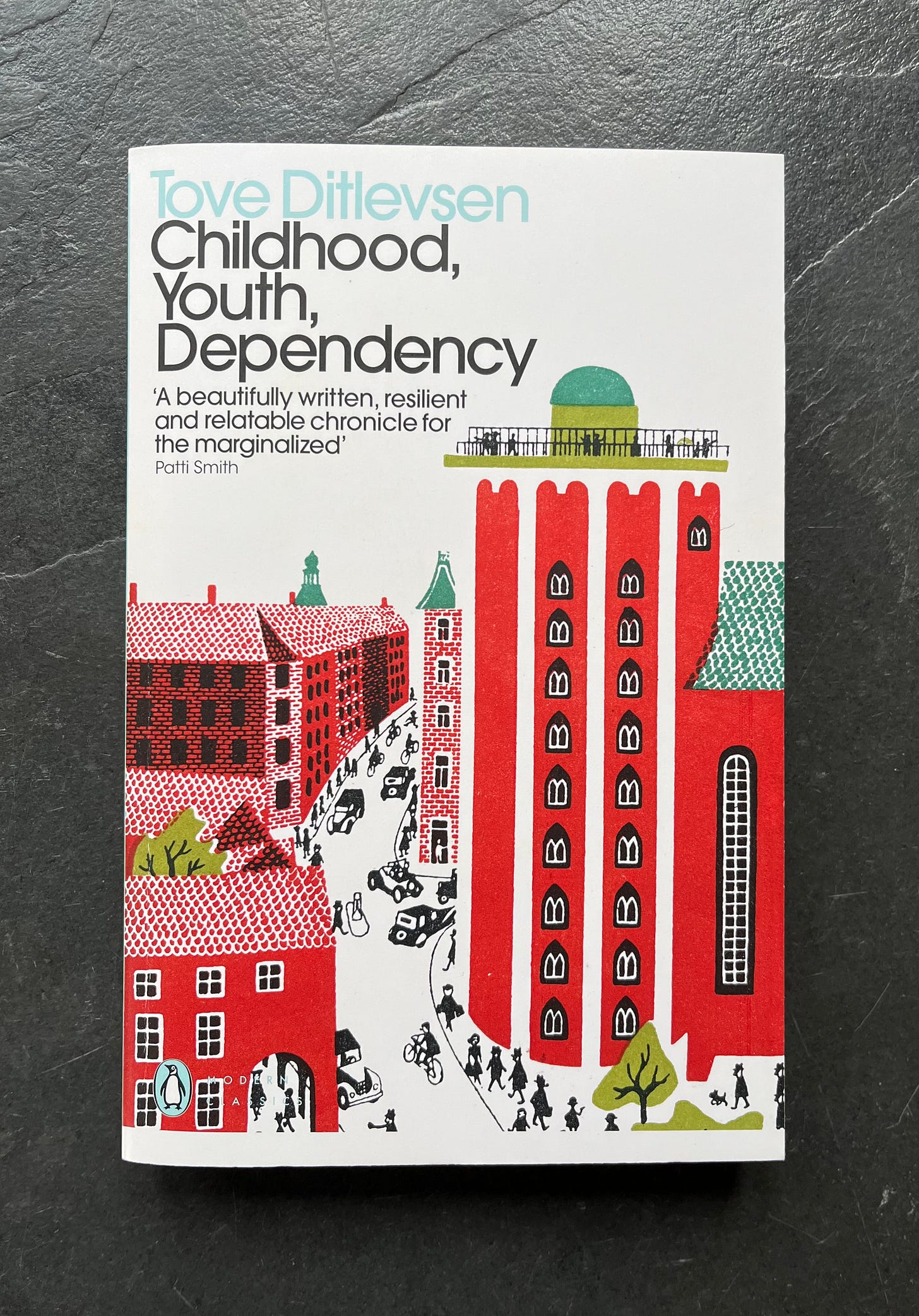
‘Childhood, Youth, Dependency’ by Tove Ditlevsen. This memoir is Ditlevsen’s recount of her life; from her girlhood in working-class Copenhagen, to her ambitions of being a writer and her experience of motherhood. Ditlevsen’s prose is searingly honest and candid as she recounts her life as a woman which is characterised by hardship, bravery and addiction. I read most of this novel with my mouth agape at the life Ditlevsen has lived and her approach to writing about it so openly. She is one of the most endearing writers I have ever encountered, her prose is intense and immersive. I continue to be in complete awe of this novel, and more importantly, her. It is a remarkable tale of courage and defiance that is utterly inspiring, one that I believe everyone should read. My full review can be found here.
To Read If You: Enjoy stories that explore the hardships of being a woman, specifically one of low social standing. Are interested in the intersection of poverty, class and gender. Like to read books that frankly explore addiction. Are interested in what life was like for women in Denmark in the early twentieth-century. Want to read a woman's no frills account of her life.
‘Animalia’ by Jean-Baptiste Del Amo is the most linguistically impressive book on this list. The novel retraces the life of a modern peasant family in France from 1890 to 1990 as they develop their small plot of land into an industrious pig farm. Five generations are physically and emotionally bound to the land, living within a consistently hostile environment. Del Amo writes with profound philosophical commentary about the relationship humans have to creating, consuming and justifying violence. I have mentioned before how much I enjoy fiction that challenges me and this challenged me in such a visceral way. I felt like Del Amo was pushing the reader to the limit in provoking how we consider our relationship to violence and the natural world. I was enamoured by how uncomfortable Del Amo was making me feel. I recommend this novel to anyone who feels like they haven’t read anything different or daring in a long time. My full review can be found here.
To Read If You: Enjoy generational family-sagas. Have previously enjoyed East of Eden - this has similar themes of fate and generational curses. Contemplate on the interdependence between man and animal. Like your fiction to interrogate our food systems and farming. Appreciate novels that explore humanity's relationship to violence. Are interested in following a story that maps the advent of technology in farming. Like to be challenged in mind, body and spirit by the books you read.
Do Not Read If You: Are squeamish or really love pigs. Seriously.
‘Intermezzo’ by Sally Rooney. I have been a Rooney fan for as long as she has been a writer, and when I heard she was releasing a book last year, I already knew it would be a favourite. My expectations were high, but she met them. Intermezzo is the story of two brothers, Peter and Ivan, who are a world apart professionally and personally. When their father dies, they drift even further apart. Through alternating points-of-view we are privy to how they are coping in grief and the immense misunderstanding they both have about each other. While plenty of love and sex is present here, a Rooney trademark, the novel’s focus is on the brothers' fractured relationship. I think Intermezzo is Rooney’s strongest yet as it suggests that the complexity of life is consistently and unjustifiably simplified by language’s inability to describe it. My full review can be found here.
To Read If You: Enjoy challenging sibling dynamics. Are interested in the impact of a chronic illness on a romantic relationship. Believe that the constrict of what is ‘normal’ is damaging for all of us. Appreciate stories where profound love and pain exists at the same time. Enjoy narratives that explore the challenges of communication. Want to read more stories with autistic characters. Like novels that discuss the intimacies of life found in the quiet moments.
‘A Spring of Love’ by Celia Dale follows Esther, a single independent woman who is comfortable with the predictability of her life. But Raymond turns everything upside when he starts to intently court Esther to be his wife. Raymond is not all as he seems and as the novel progresses, the reader watches Esther’s unshakeable view of the world slip further and further away. This novel is unsuspecting and sinister as Dale explores the currency of marriage and motherhood for women in our patriarchal society. A Spring of Love surprised me in its emotional complexity and the plot. I feel it is becoming increasingly rare that I am genuinely shocked by a plot anymore, and that made me admire it even more. I thought this novel was exceptional in its prose, structure and pacing. My full review can be found here.
To Read If You: Are interested in the life of a woman in 1950s Britain. Constantly think about the impact of the patriarchy on women’s professional and personal decisions. Are interested in those that defy, or give in, to societal expectations. Enjoy reading books where suspicious activity is afoot. Like to read books that talk about misogyny. Enjoy books that have faded into obscurity. Think that heteronormative societal expectations are a boring.
Some reading intentions for 2025;
To read some contemporary translated Russian literature (everything I read last year was classic. I want a different perspective.)
To read more translated African literature. I said this last year but did little to help myself enact it. Translated African literature is, unfortunately, often not lying around in the bookstores - you have to seek it out a bit more. Thus, I am more equipped this year - I have my list, I am ready.
To have read a translated book from every country in South America. I am within touching distance of it, so I would like to achieve that this year. If you have any translated book recs for Boliva, Ecuador, Guyana, Paraguay, Peru or Suriname - please share them with me!
To read a translated book from Germany I like! The two I have read from Germany, I have hated a lot. I wish for that to change.
To read more translated literature from Eastern Europe.
Some books & authors I would like to read in 2025: (to name a few)
The Grapes of Wrath by John Steinbeck
2666 by Roberto Bolaño (I have not read the Bolaño that is on my shelf yet (The Savage Detectives) but I know I will soon!)
Song of Solomon by Toni Morrison
The Bluest Eye by Toni Morrison
Another Country by James Baldwin
Yonnondio by Tillie Olsen (with
’s closely reading group in April!)Prodigal Summer by Barbara Kingsolver
Iris Murdoch - where do I start? (perhaps this is a question for
)Susan Sontag - a loose author project, if you will. I have the most interest in Regarding the Pain of Others, On Photography and Illness as a Metaphor
A Little Devil in America by Hanif Abdurraquib
There, There by Tommy Orange
The English Understand Wool or The Last Samurai by Helen DeWitt
Karl Ove Knausgård - who I have been saying I would like to read for a long time, but consistently fail on knowing where to start. Recommendations for Knausgård are welcomed and encouraged.
Let me know your thoughts:
❀ Have you read any of these books? Do you agree, or perhaps disagree, with my love for them?
❃ What were your favourite reads of 2024? What was the best book you read last year? Would you recommend it to me?
❁ Do you have any intentions for your reading in 2025? Do we share any similar ambitions? Tell me everything - even if your intention is just to read one specific book!
Thank you, always, for reading and being here.
See you next month,
Love Martha
If you know someone who is wanting to expand their reading life in 2025 by reading more translated and diverse books, share this newsletter with them!
Catch up on what you might have missed:
And My Favourite Reads of 2023 if you’re interested to see how 2024 compares!
Remember to subscribe if you enjoyed this and want to receive recommendations straight to your inbox!
I endeavour to always introduce you to books that don’t get coverage elsewhere. That is a promise.
This stat is for any book written by anyone who isn't white or European
For those who are unaware of The Big Five, they are the five publishing houses who dominate the book industry. They are; Hachette, Harper Collins, Macmillan, Penguin Random House and Simon & Schuster. As a consumer (of anything) we have the power in where our money and attention goes. To quote this piece from
and : ‘The reader’s challenge now is to look beyond the Big Five’s mediocrity machine. This is not easy, considering how many imprints the Big Five holds, but it is possible. Readers are not just static consumers. If we choose which writers we want to read, we can also choose which publishers we want to buy from—and can recognize that, at this moment in time, the Big Five and the small presses are driven by entirely different incentives.’I should note that most of the books that were published in 2024 were translations of books published a few, or many, years earlier. So there is a slight grey (I guess) in this, although I think translations are new editions because they have been tirelessly interpreted and translated by someone, making it a different piece of work.
Honestly I just combined the years from 2023-2000 for efficiency, but to give insight; roughly over half of this figure was books 2023-2020. There was another big chunk from 2019-2010, and few from 2009-2000. I think I’d like to make more of an effort to be reading books from the forgotten book years of 2012-2000.

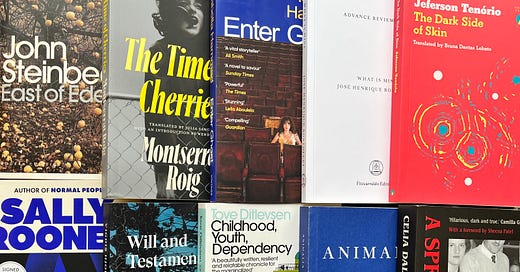


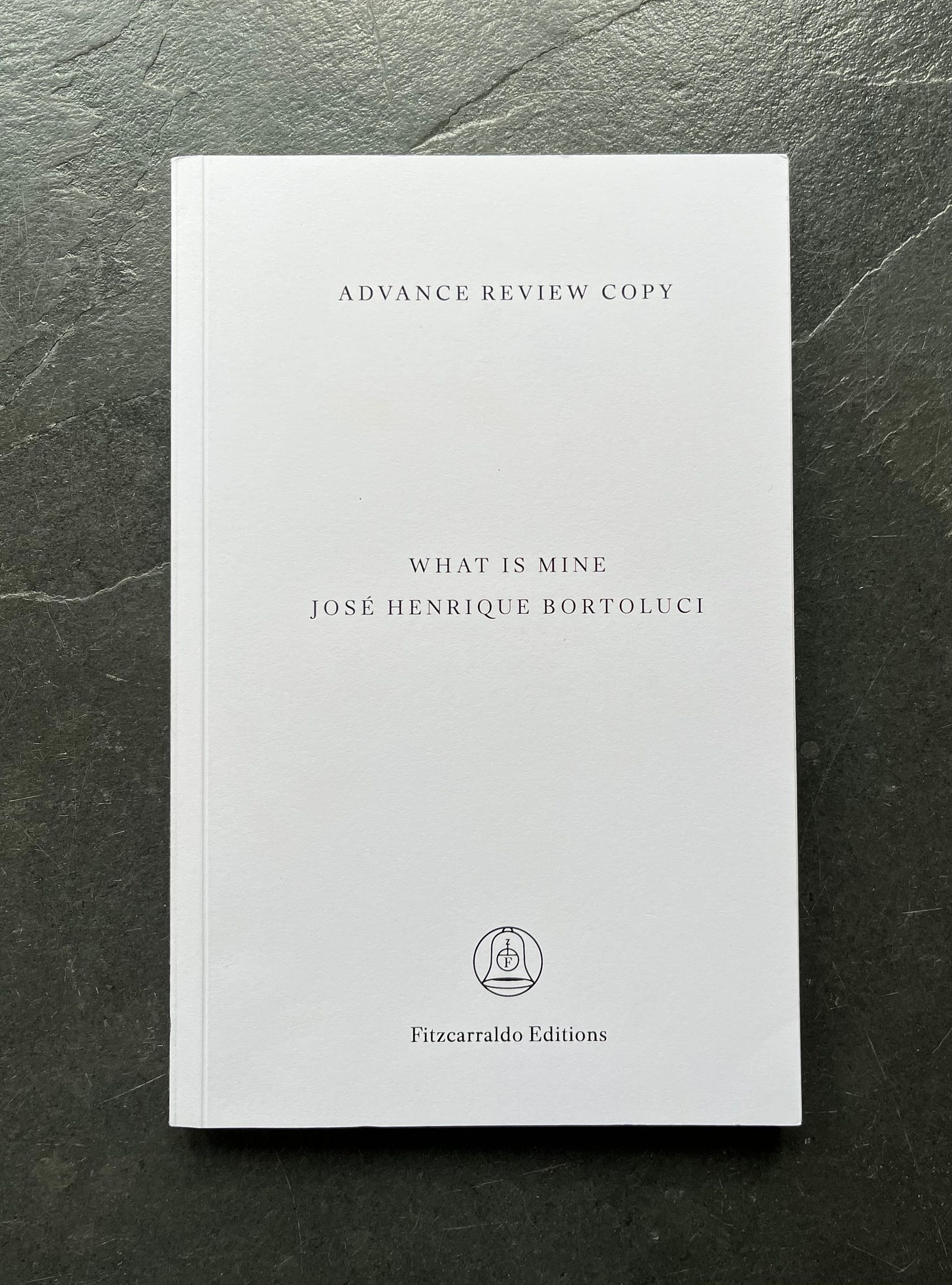
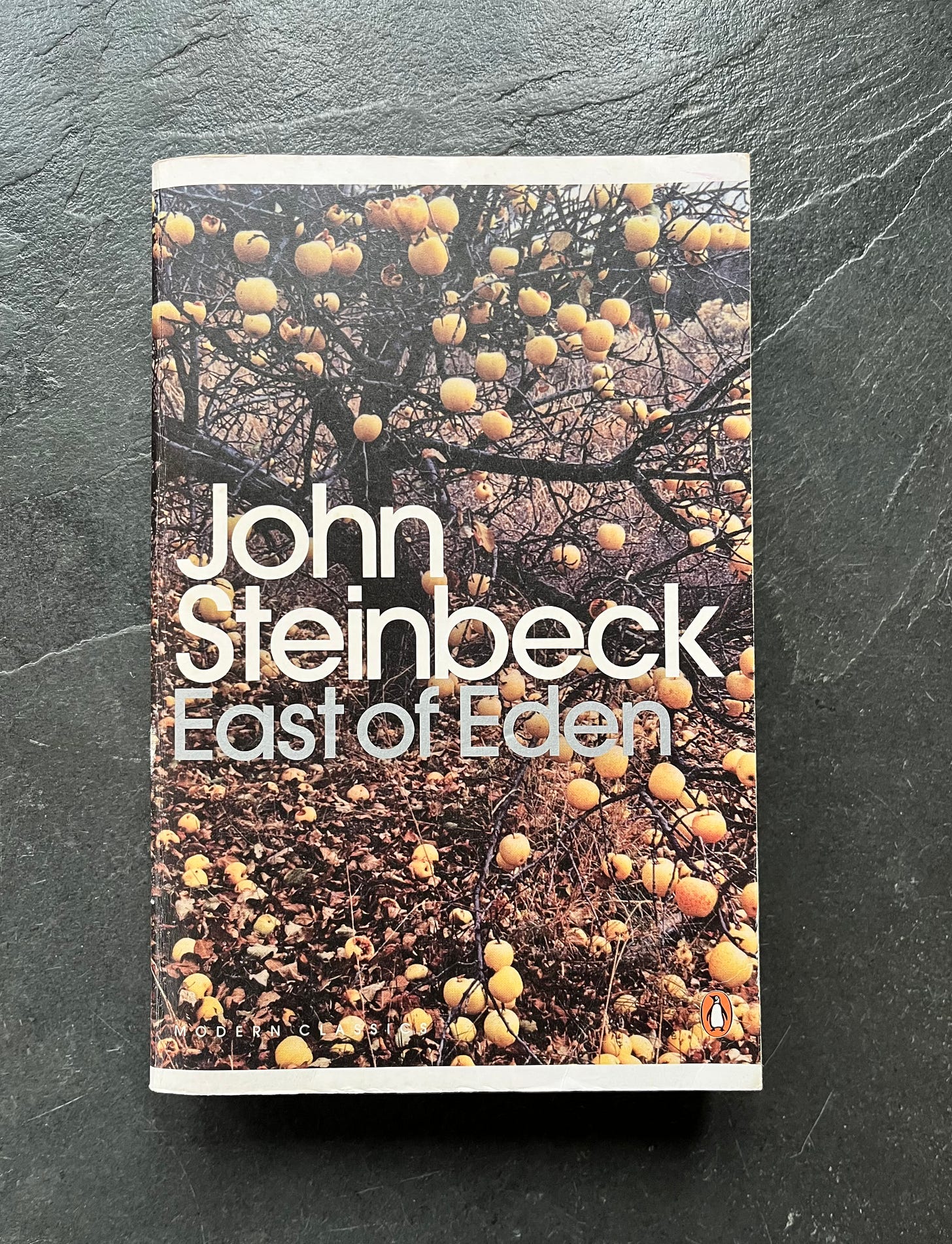
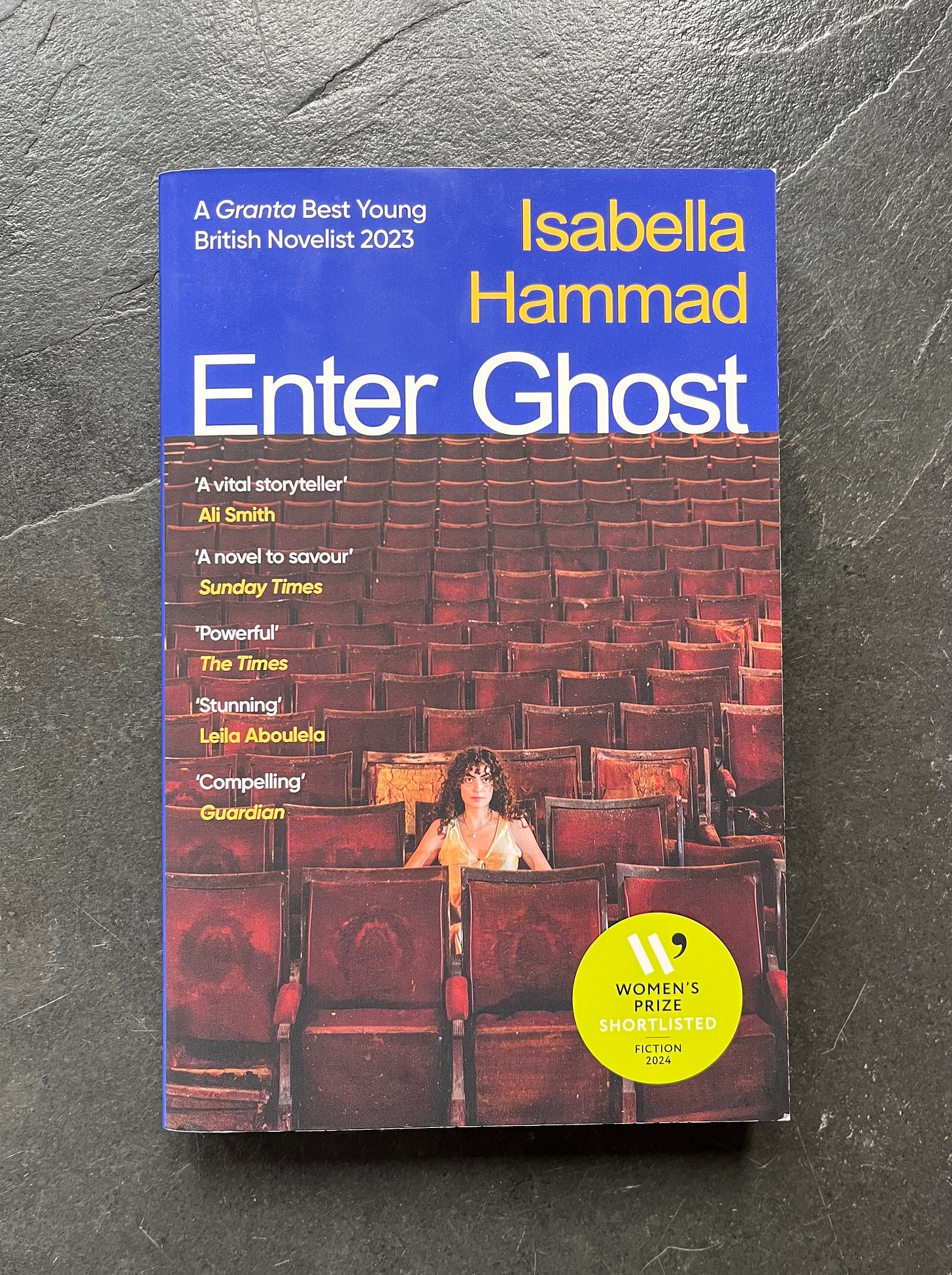
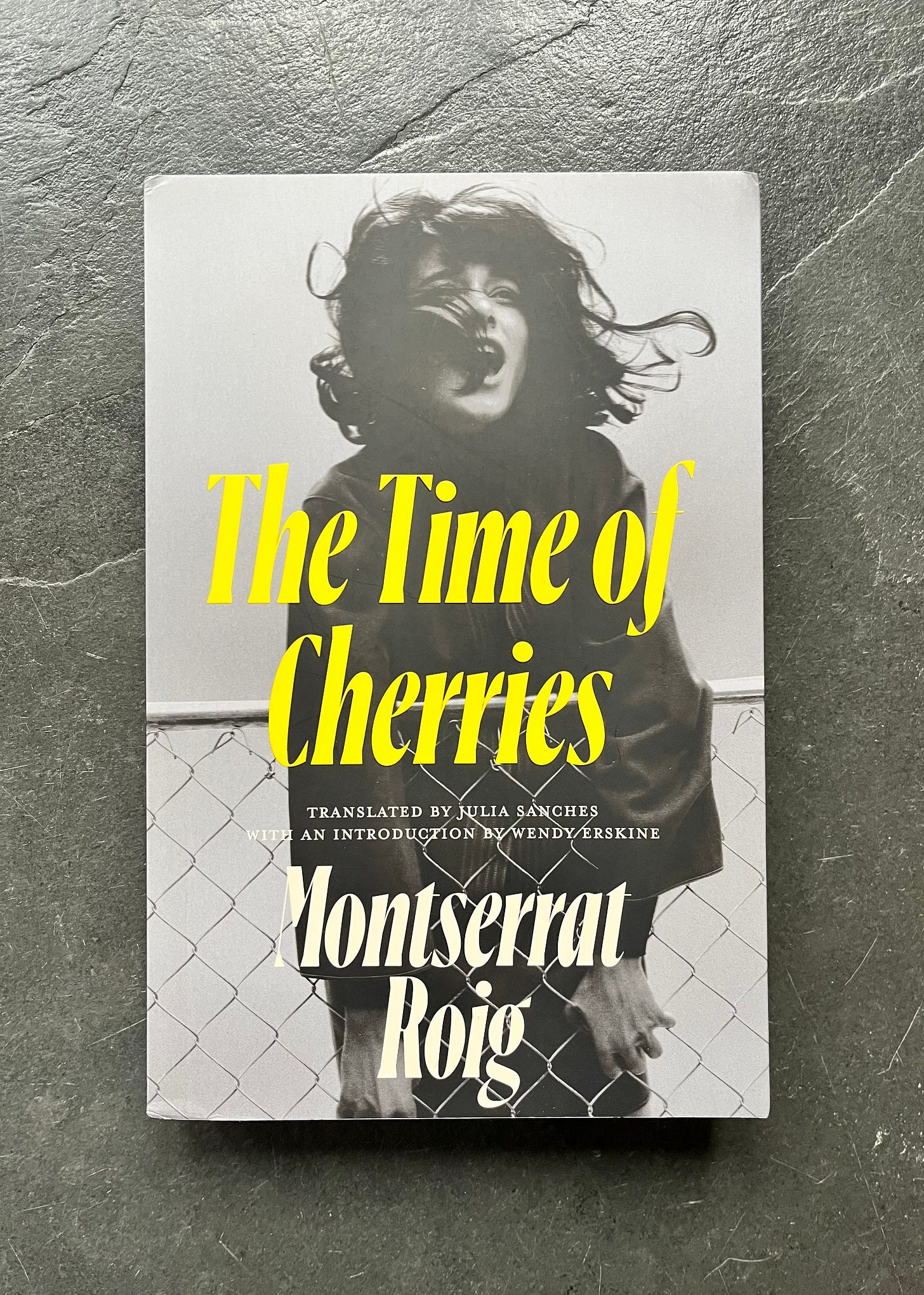
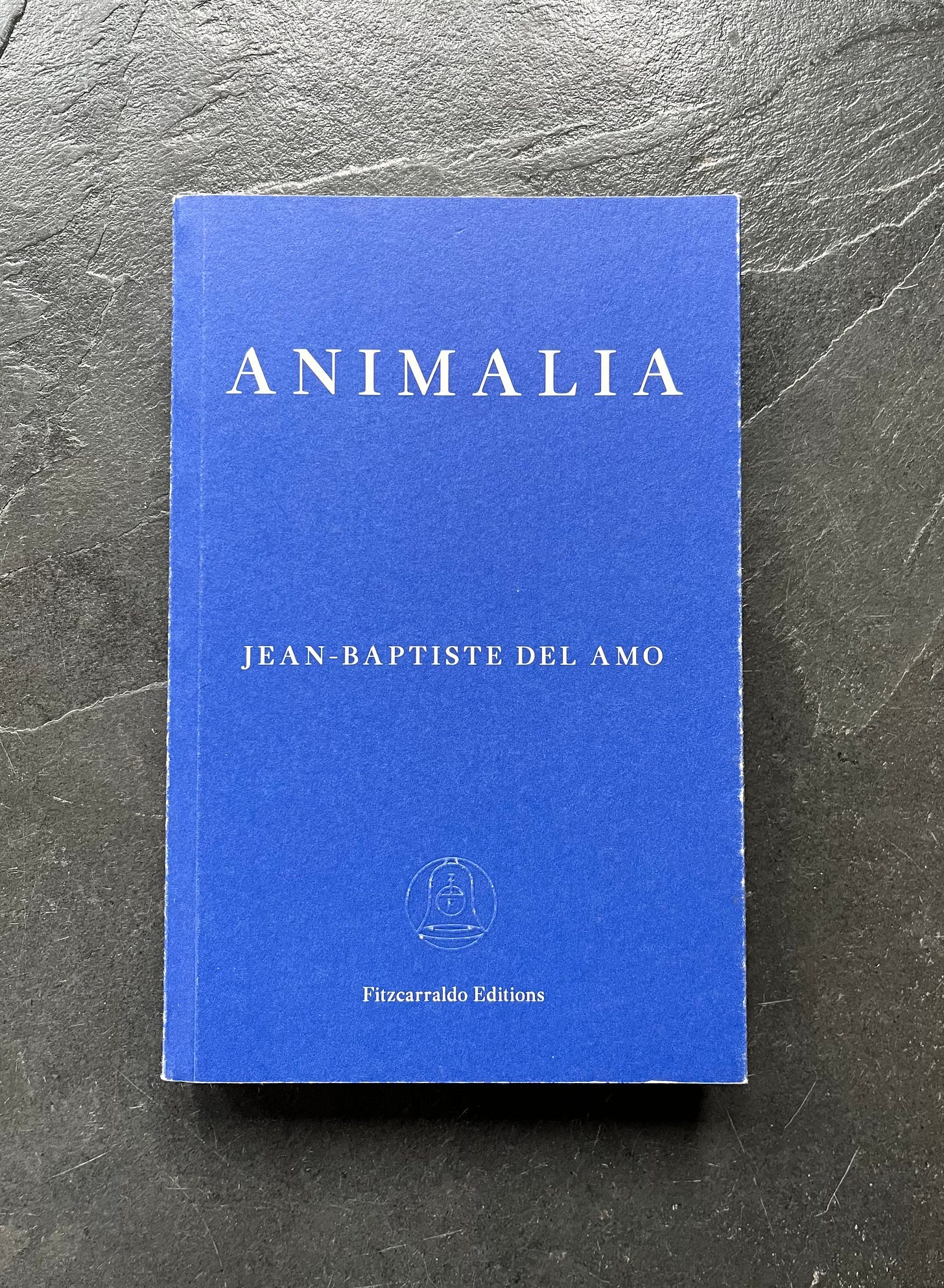
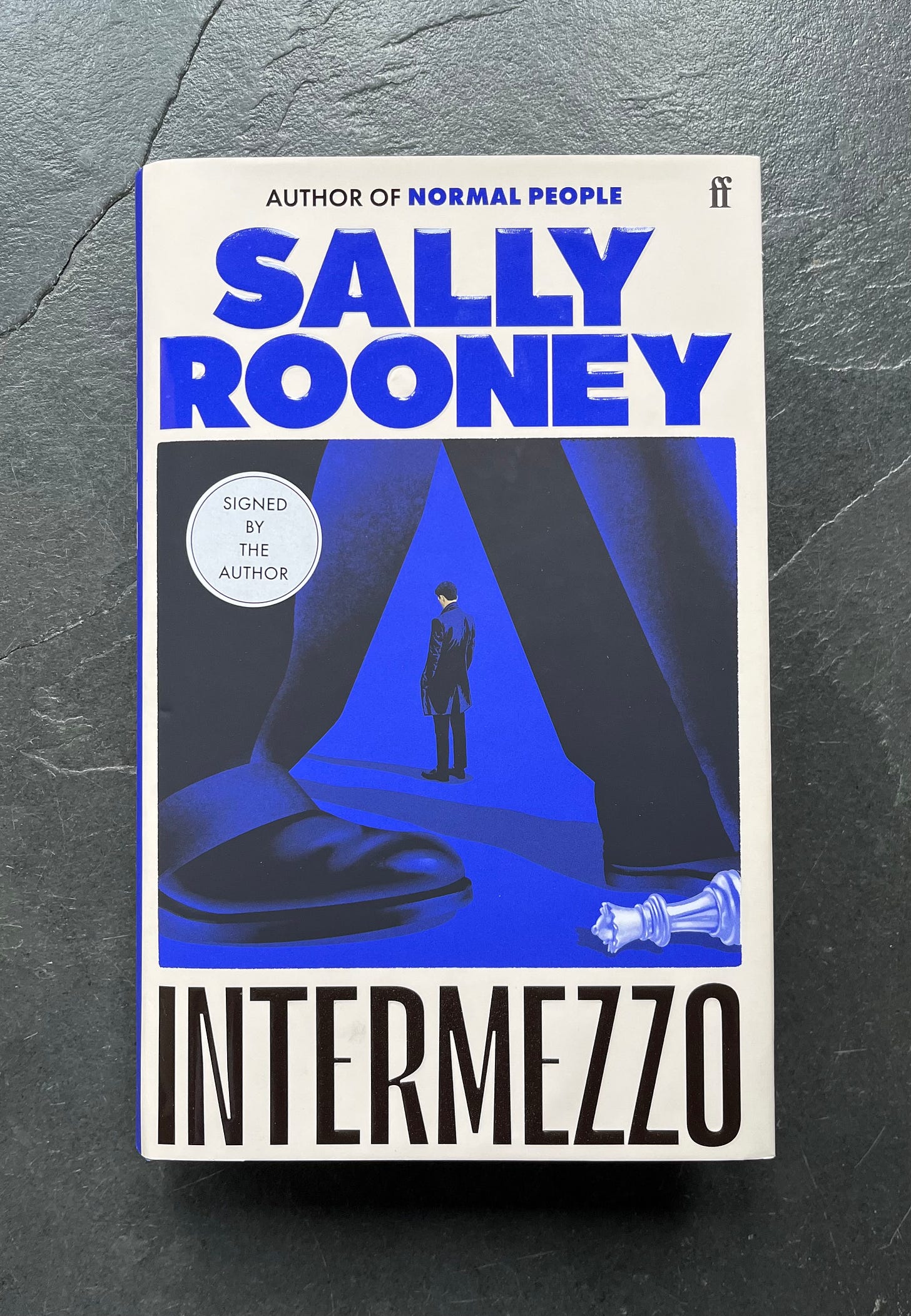
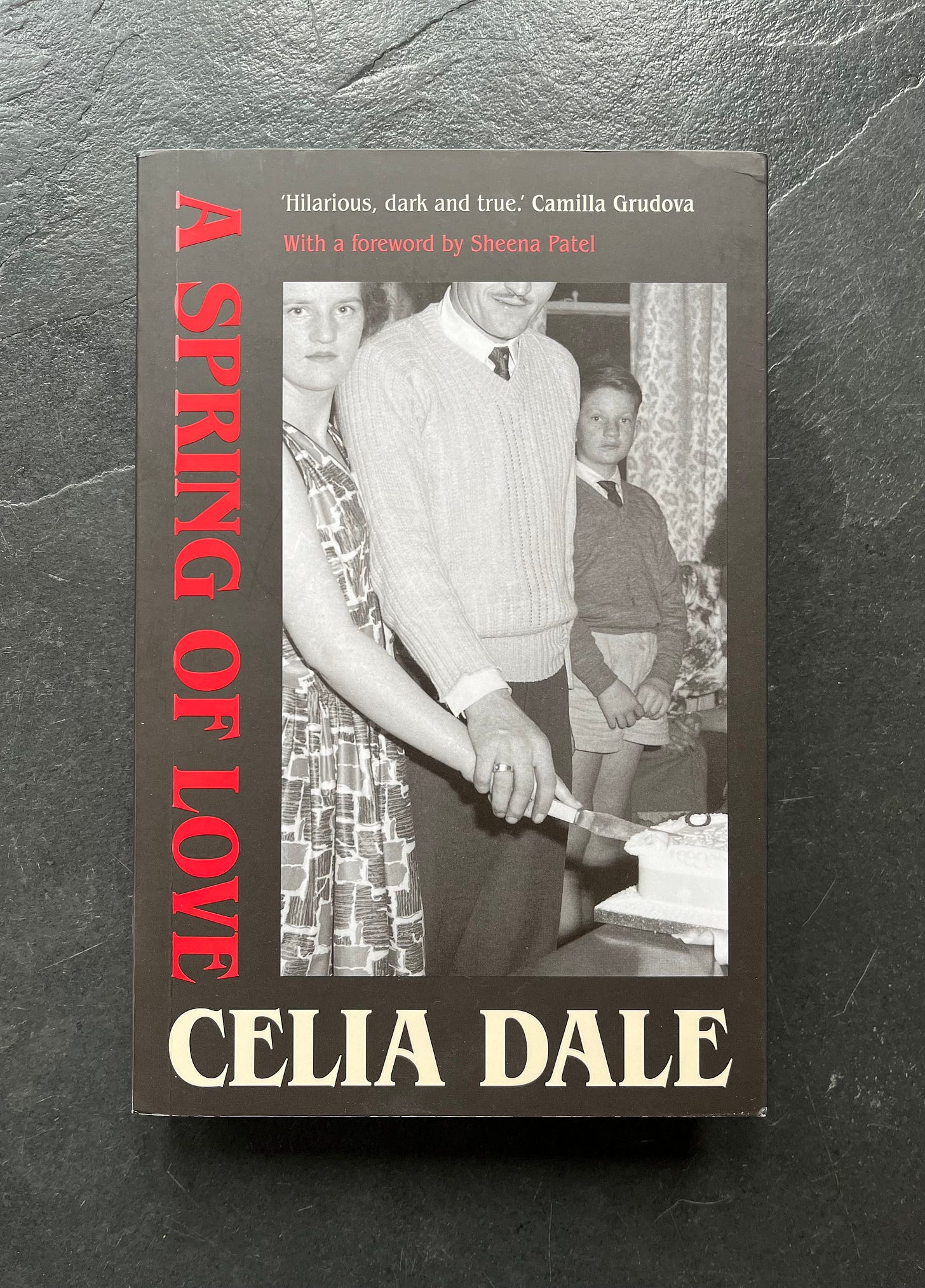
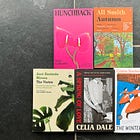


Girl your brain! You always challenge me to think more critically about what I read and how I read. So many people talk about "reading diversely" but you're out here doing the damn thing and it's a joy to see !
This is the first time I've read a review of Intermezzo that mentions the impact of chronic illness on romantic relationships! That makes me much more interested in the book than I was before reading your post.